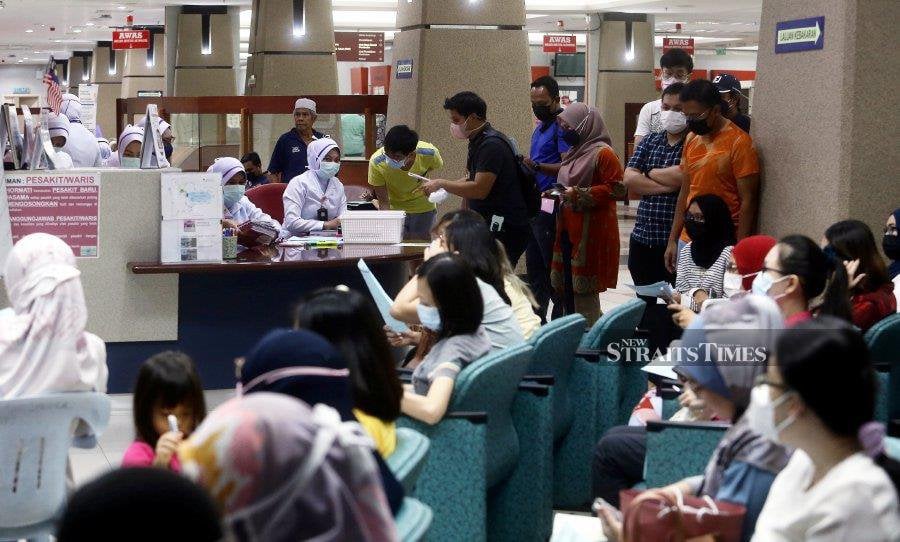KUALA LUMPUR: Low public awareness on the severity of diseases that require emergency treatment has led to overcrowding problems at government hospitals.
Kuala Lumpur Hospital (HKL) emergency medical consultant Datuk Dr Alzamani Mohammad Idrose said that there are still people who do not understand the actual function of emergency departments, leading to cases where individuals with minor illnesses seek treatment.
"The function of the emergency department is to serve those in critical conditions. However, there are also those who do not fall into the emergency category but still come for treatment. This is one of the reasons for the increase in cases at emergency departments.
"(In cases at government hospitals), on average, those categorised as green may not need to come, for example, those experiencing just a common cold. Eventually, these patients become frustrated and disappointed due to long waiting times," he told Bernama's Ruang Bicara programme last night.
"It's important to remember that health workers (in emergency departments) prioritise emergency cases for patients facing life and death issues."
The programme was hosted by presenter Sherkawi Jirim. Further commenting, Dr Alzamani said that the public must be more aware and evaluate their health conditions before coming to the emergency department.
"Firstly, if (patients coming in) are not in the emergency category, it disrupts the focus of the healthcare team trying to provide treatment to those truly in critical conditions.
"For those with minor ailments, such as wound dressing, medication continuation, and needing a medical certificate (MC), they should go to health clinics. Don't go to the wrong place when there are other options available, including reducing waiting times.
"There are health clinics that have extended operating hours, some even until 9pm. This is an initiative by the Health Ministry (MOH) to help increase treatment capacity for non-emergency cases," he said.
He also advised the public to take advantage of the Madani Medical Scheme initiative launched last year to enable individuals or B40 families to receive treatment at private clinics.
Answering questions about other causes of extraordinary congestion in emergency departments, he said that in certain situations, hospitals also face problems when there are latecomers to pick up patients.
"We also hope the public contributes in terms of 'output'. For example, wards are usually full because patients who could have been discharged since early morning still remain because there is no family member present to arrange discharge. Some only come after working hours or at night.
"So, this causes other patients who should have been sent to the ward to remain in the emergency department, and there are fewer beds for new patients. This happens most of the time. I hope it can be changed. Please take your loved ones home on time to reduce the number of patients still stranded in the hospital," he added.


